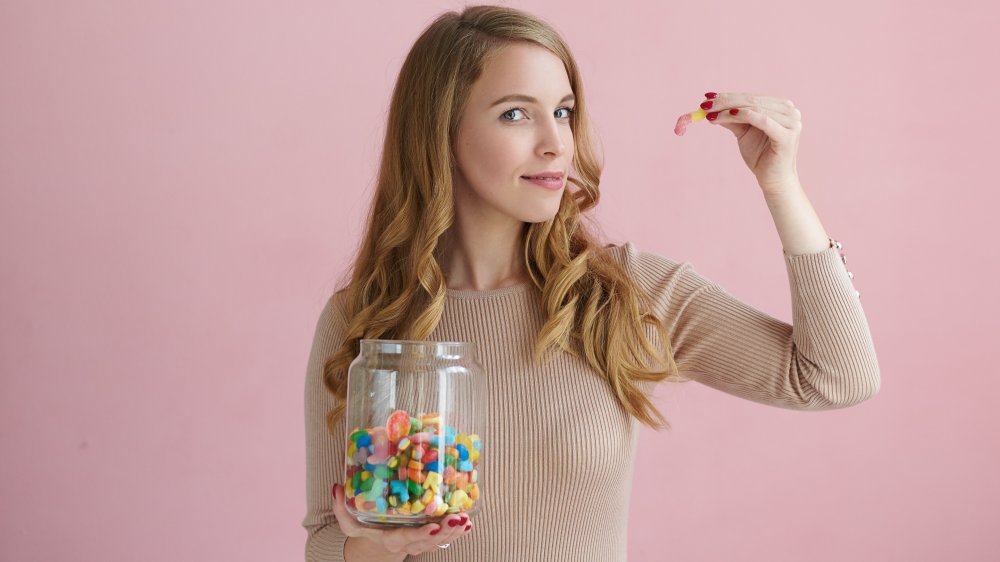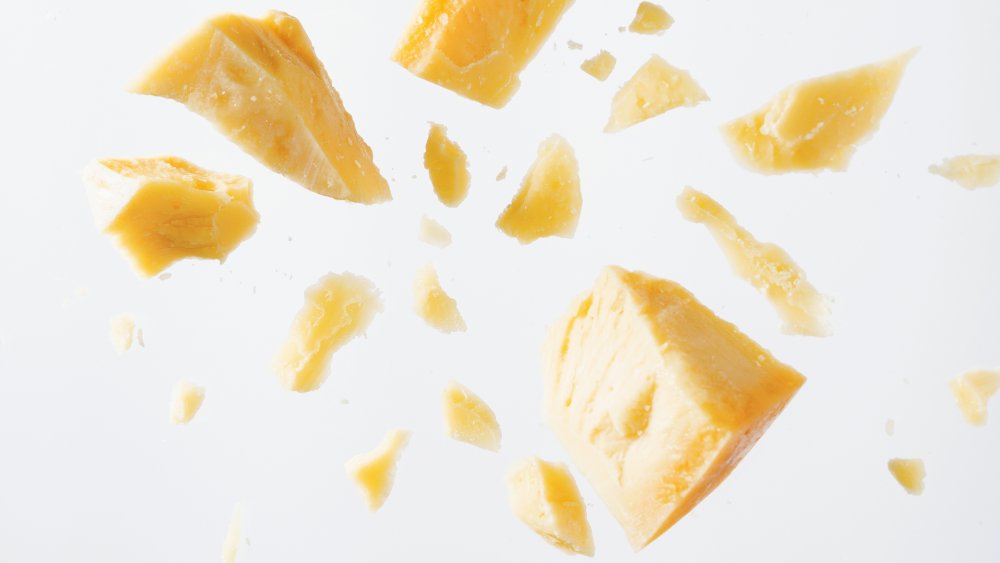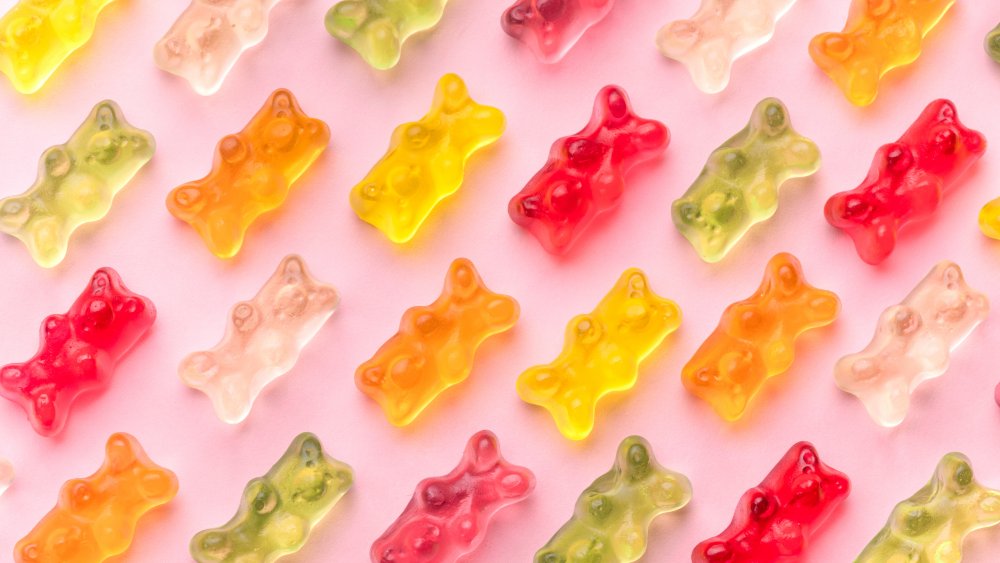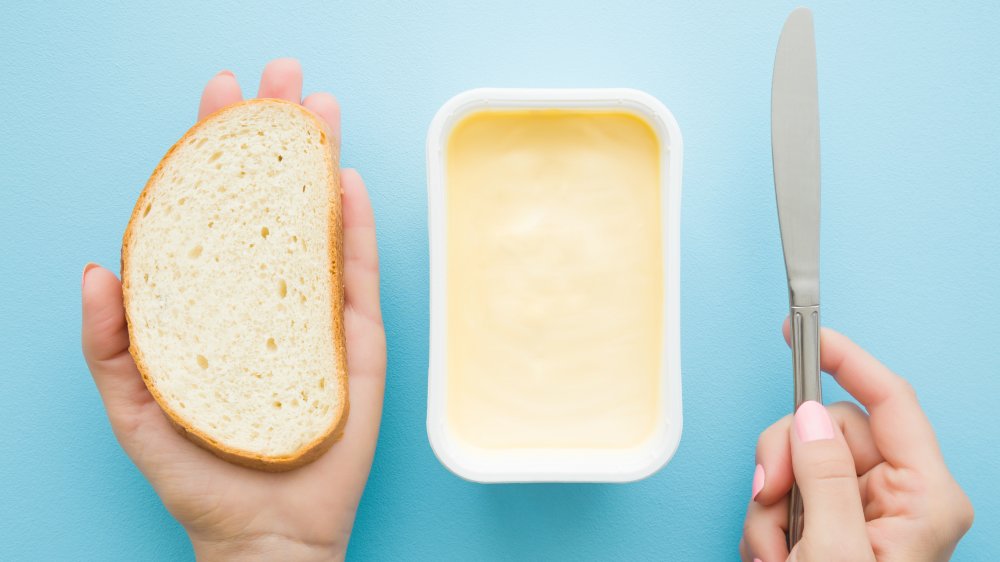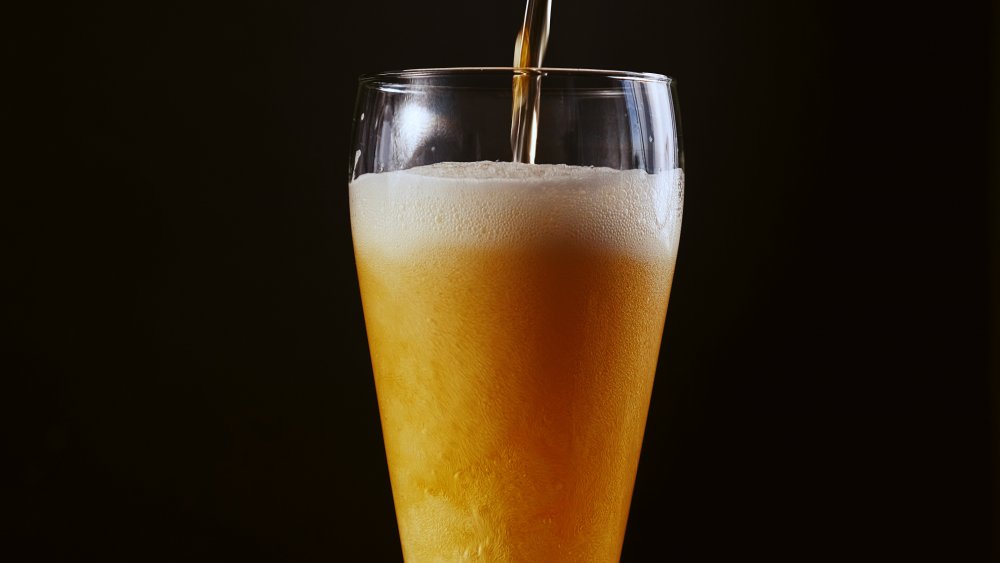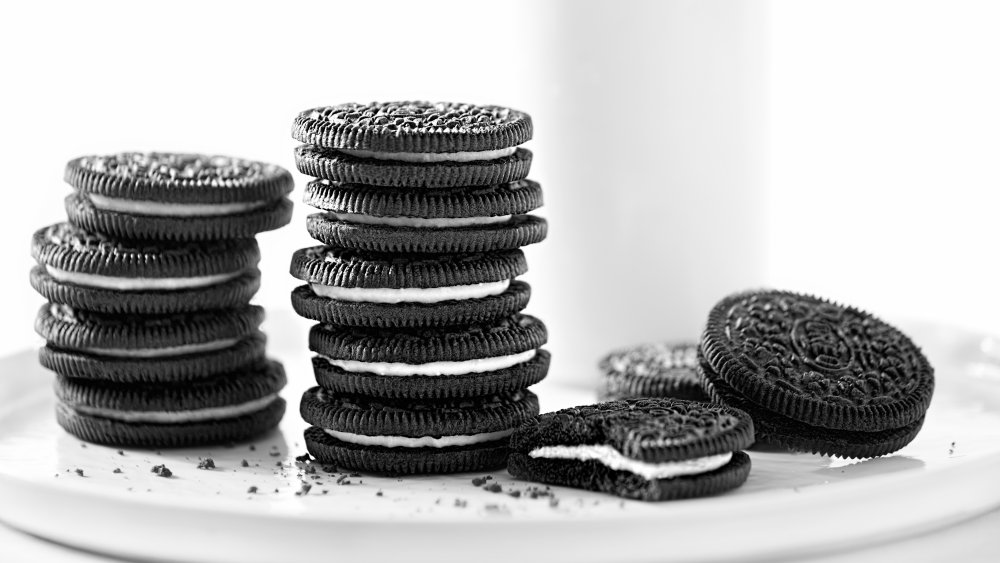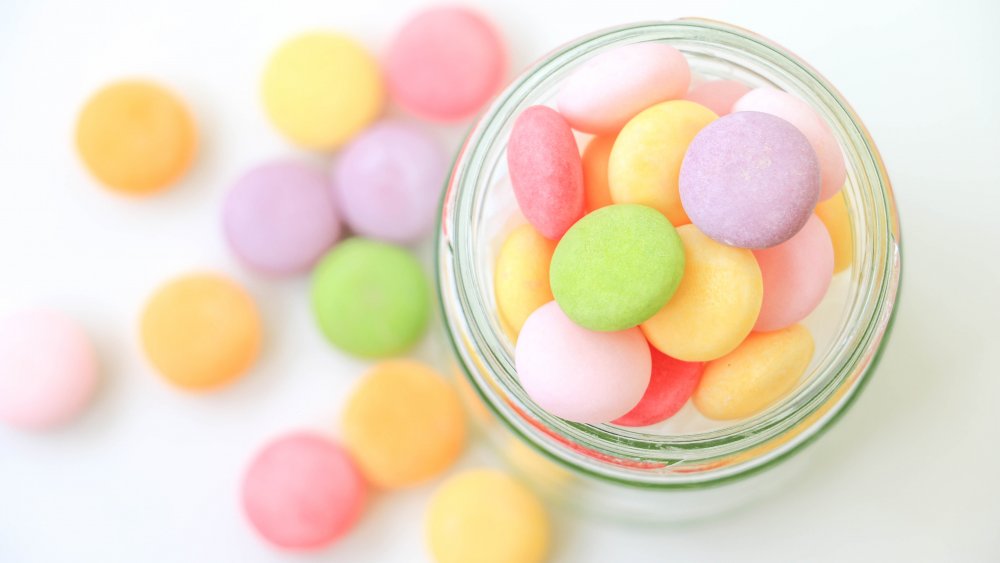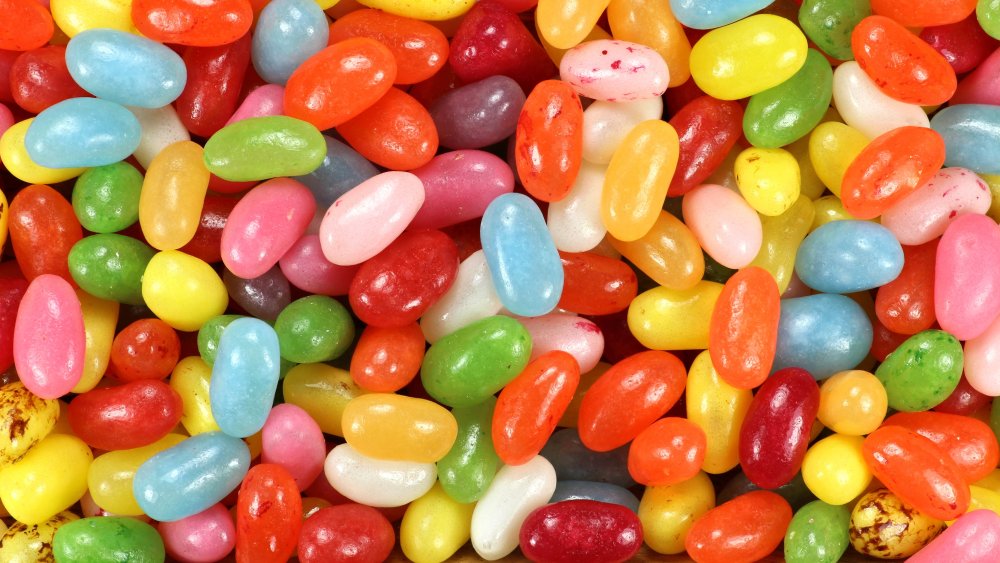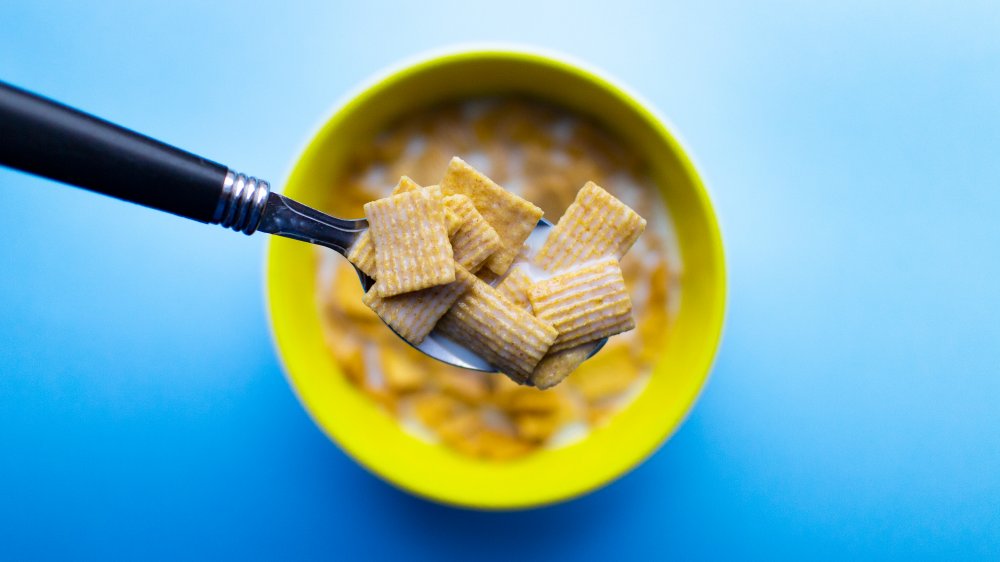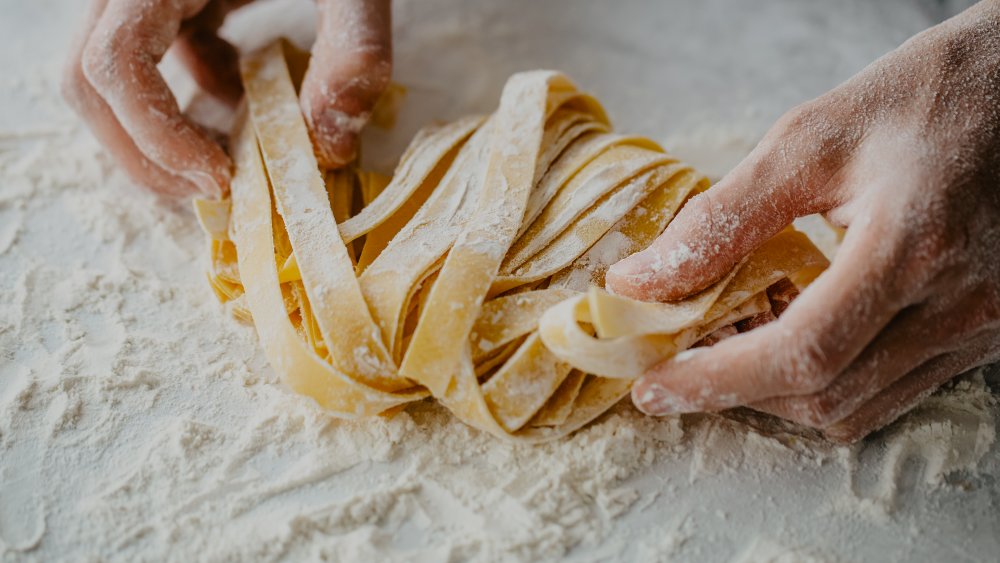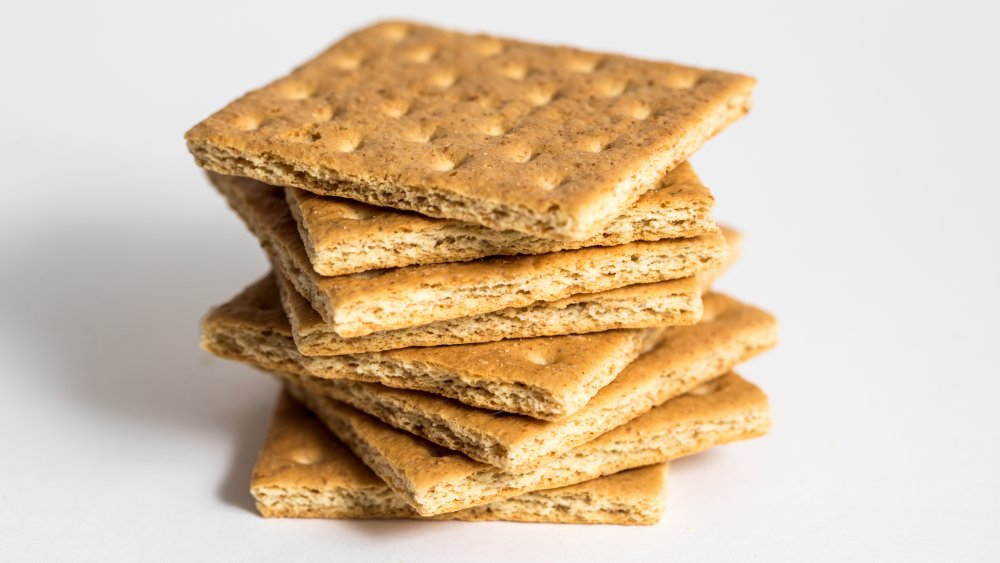Foods You Probably Thought Were Vegan But Actually Aren't
Opting for vegan foods can have serious health benefits. Studies show that eliminating meat can lower your risk of type 2 diabetes and heart disease, two of the most common chronic diseases in the world. But, following a vegan diet isn't easy, and it's certainly not for everyone. You have to eliminate all foods that come from animals, including meat, fish, eggs, dairy, and other animal byproducts, like honey (via Healthline). In other words, you'd eat only plant-based foods: fruits, veggies, grains, nuts, seeds, legumes, et cetera. That typically means doing lots of home cooking, and vigilantly reading ingredient labels of your favorite store-bought foods.
The good news? Plant-based eating is getting more popular, so there are plenty of great-tasting vegan products on the market. There are plant-based ice creams, plant-based cheeses, and a huge variety of plant-based milks. Heck, there are even plant-based burgers that look and taste like beef.
The not-so-good news? Many of the foods you probably thought were vegan actually aren't. From food coloring made of dried insects to cross-contamination with milk-containing products in manufacturing, animal-derived products can easily sneak into seemingly vegan-friendly foods. Whether you're a veteran vegan or thinking of giving the diet a try, here are some foods to be wary of.
Not all kinds of gum are vegan
While you probably don't think of a stick of gum as something to worry about on a vegan diet, the truth is that many brands aren't totally free of animal products. And sure, you don't actually swallow gum, but chewing it still counts as consumption. Trident sugarless gum, for example, contains calcium casein peptone-calcium phosphate, which is made from milk proteins. And while the ingredient does serve a purpose — it "remineralizes tooth enamel by delivering calcium and phosphate beneath the tooth's surface," according to the McGill University Office of Science and Society — it isn't vegan.
Other brands might not actually disclose everything that's in their gum. "Because of standards of identity for items such as gum base and flavoring, manufacturers are not required to list everything in their product," The Vegetarian Resource Group cautioned. Instead, many list "gum base" as an ingredient, which could (but doesn't always) include ingredients like petroleum, petroleum wax, or glycerin. All of these can come from animal sources. Because of this tricky labeling, it's best to stick with gum that's specifically labeled vegan.
Some brands of heat-and-eat vegetable soups aren't vegan
You'd think broth-based, vegetable-packed soup would be a safe bet on a vegan diet, right? There's no meat, cream, or egg, so what could be the problem? Unfortunately, that isn't always the case. If you're looking to stock your pantry with heat-and-eat canned soups, you'll need to be vigilant about which vegetable soups you buy. Some canned soups use meat-based broths, even though they don't contain chunks of meat. For example, Campbell's Old-Fashioned Vegetable Soup lists beef stock as its very first ingredient! Others, like Progresso Minestrone, contain small amounts of milk.
Don't fret. There are plenty of vegan soups out there. Amy's is one vegetarian brand that's sold at most supermarkets, so look for their soups that are marked vegan. Pacific Foods and Campbell's "Well Yes!" line are two other great labels with vegan options. Or, you could meal prep big batches of vegetable soup from scratch, then portion and freeze leftovers for easy, reheatable meals. The Vegetable Soup from Simple Vegan Blog is a great place to start, but you can easily customize it by adding whatever vegetables, beans, and grains you want.
Many wines are not vegan
First of all, don't panic. Going vegan doesn't have to mean giving up your favorite wines. As you likely know, wine is made by letting grape juice sit and ferment for an extended period of time, then fine-tuning that fermented product into something quaffable. The problem? One late stage of the wine-making traditionally involves animal byproducts.
"While an increasing number of wines are technically vegan, a substantial number of wines still use animal-based products in the 'fining' process: clarifying the wine by removing proteins, yeasts and solid materials that would otherwise make the wine cloudy and visually unappealing, or would even create off-flavors or aromas," wrote Steven Kolpan, professor and chair of wine studies at The Culinary Institute of America, in an article for Salon.
These "fining agents" can be anything from egg whites to gelatin to isinglass, which is made from fish bladders. Wine labels don't have to display what kind of agent is used to fine the wine inside. Luckily, more and more wineries are using alternatives like carbon and bentonite clay as fining agents. Look for wineries that advertise their wines as vegan, or go ahead and ask your local wine merchant for vegan recommendations.
Lactose-free cheese is not the same as vegan cheese
It might come as a real shock that not all cheese alternatives are totally vegan, since the point of them is to provide an option for people who don't eat dairy, right? Alas, that's not always the case. Certain products, like GoVeggie Lactose-Free Cheddar Shreds, actually contain both soy and milk. Why? The product is actually made for lactose-intolerant folks — people who are unable to digest and break down lactose, a sugar that's naturally found in milk and all other dairy products (via Healthline).
While lactose-free cheeses and other lactose-free products might be easier on the stomach than traditional dairy, don't mistake them for vegan; they still contain milk fat and milk protein. If you want a vegan-friendly cheese, opt for a tried-and-true product like Daiya, which is free of all eight major allergens, including dairy and soy. Or you can try something a little different, like Kite Hill's almond milk-based cream cheese and ricotta.
Gummy bears are oftentimes not vegan
No actual bears get hurt in the making of sweet, chewy, colorful gummy bears. That said, most store-bought gummy bears (and gummy worms) do contain gelatin, made from the collagen released by boiling animal bones. If it's hard to imagine how a beef bone could release something used to make a cute gummy bear, think of beef broth. When you simmer the bones in liquid on the stove, you end up with a lightly colored, beef flavored broth. And while the stuff is liquid at room temperature, it gets jiggly and gelatinous when chilled (via Bon Appetit).
The cause of that jiggle is gelatin, which can be removed from the liquid and dried into a powder. You can buy that powder straight up in the baking aisle at your supermarket, or flavored in Jell-O packets. Food manufacturers also use it to add chewy texture to certain candies, including gummy bears. Luckily, there are vegan gummy bears out there. Brands like Annie's use tapioca syrup and pectin, both plant-derived ingredients, to add texture and thickness to their gummy candies.
Margarine isn't always vegan
Margarine was originally created in France as a less expensive alternative to butter for the emperor's army, and the original 19th-century recipe was actually made with beef tallow, aka cow fat, instead of butterfat (via ScienceDirect). In the 1970s and 1980s, nutrition scientists learned more about the negative effects of the saturated fatty acids found in animal fats, so manufacturers began using vegetable oils instead of animal oils to make margarine.
Although modern-day margarine is made with vegetable oil as its base, not all brands are totally vegan. For example, Land O'Lakes margarine lists buttermilk, a tart fermented dairy milk, as its fourth ingredient. If you want a butter alternative that you're sure is vegan, consider Earth Balance Vegan Buttery Sticks. You can use the product exactly as you'd use butter or margarine — whether that means spreading it on toast or beating it into vegan cookie batter.
Your favorite beer may not be vegan
The makers of world-famous Guinness Stout made headlines in late 2017 when they announced Guinness was going vegan — which came as a real shock because most people assumed Guinness had always been vegan (via PETA).
While it was certainly good news for vegans, it brought to light the fact that many brewers use animal byproducts in the beer-making process. "Finings are a form of gelatin that come from boiling the skin, cartilage, and bones of animals," explained Dr. Chris Mohn, a registered dietitian, in a Men's Health article. A particular type of fining, called isinglass, is used in beer production to control yeast production and prevent haze and unpleasant flavors. While it's useful to brewers, isinglass isn't at all vegan-friendly as it's made from swim bladders of sturgeon or tropical fish.
Not to worry, though, isinglass isn't used in all beer. In fact, modern processes like centrifuging and filtration can get the job done without any animal byproducts. In advance of your next happy hour, check out some of the vegan-friendly beer brewers that PETA recommends.
Oreos are not vegan after all
There's a myth floating around that the crowd-favorite Oreo cookie is actually vegan. While it's true that the ingredient list for Oreos is free of animal-derived products like milk and eggs, the truth is that Oreos themselves aren't strictly vegan.
The Oreo brand itself knows there's plenty of confusion surrounding this, so they went ahead and addressed it on their Frequently Asked Questions page: "Oreo have milk as cross contact and therefore they are not suitable for vegans." This means that while there are no dairy products listed as actual ingredients in Oreo cookies, there could be trace amounts of milk in the product. This is probably just as well, as Oreos are meant to be dunked in a glass of milk anyway.
Nevertheless, this kind of cross-contamination happens often when products are manufactured in big factories. For this reason, even Oreo alternatives from often vegan-friendly brands like Annie's do contain trace amounts of milk. But it's not all bad news; you can DIY your own delicious — and totally vegan — chocolate sandwich creme cookies.
Mentos contain this non-vegan coloring agent
Mentos fans, get ready for some major heartbreak. The multicolored Rainbow Mentos list carmine as a coloring agent, as do many other colorful candies. And while food coloring may seem like fair game on a vegan diet, that isn't the case with carmine.
According to the Encyclopedia Britannica, carmine is "a red dyestuff extracted from the dried bodies of certain female scale insects native to tropical and subtropical America." Uh, yuck. This insect-based food dye isn't as common as it once was, though, considering there are synthetic and vegan-friendly alternatives now available. Still, some manufacturers use carmine to add red or dark orange color to processed foods, and Mentos is unfortunately one of them.
To avoid this non-vegan food coloring, you can turn to a brand like YumEarth for all of your candy needs. Most of YumEarth products are vegan, organic, gluten-free, and certified non-GMO. They're also colored naturally with concentrated fruit juices, so you can rest easy knowing you're not unwittingly chowing down on dried insects.
Jelly beans are coated with a non-vegan shellac
Shellac, also known as confectioner's glaze, is what gives many jelly beans, including Jelly Belly jelly beans, their smooth, hard-on-the-outside coating. But it's definitely not vegan-friendly. Technically, shellac is made from secretions from Kerria Lacca beetles, which in and of itself is pretty gross. Worse, the secretions are collected by scraping the branches the beetles cling to, which often means that bits of dead beetles are collected at same time (via Scientific American).
Thankfully, it's actually pretty easy to avoid beetles in your jelly beans. Instead of grabbing a bag of Jelly Bellys, consider YumEarth Organic Sour Beans. Or, skip the jelly beans altogether and instead fill your next Easter basket with a few of these PETA-approved vegan candies. That's not to say that vegan candy is a health food — it's still high in sugar and low in vitamins, minerals, protein, fiber, and other important nutrients. But it's A-OK to eat as a treat, even on a vegan diet.
Your cereal may be fortified with non-vegan vitamins
If cereal and almond milk is one of your favorite vegan breakfasts, you should probably check your cereal boxes for signs of animal products. That doesn't mean just ruling out milk, eggs, or other obviously animal-derived ingredients.
According to The Independent, major breakfast cereals like Cheerios and Rice Krispies cannot be labeled vegan because they are fortified with either vitamin D3 or D2. While D2 is always plant-derived, D3 sometimes comes from animal sources, like sheep's wool. Currently, there's no way to tell which one a manufacturer uses without reaching out to the manufacturer directly, and who really has time for that?
"This presents issues for vegans, who make every effort to avoid animal products," a spokesperson for The Vegan Society told the publication. "We urge manufacturers to opt for vegan sources of vitamin D, and to label the ingredient clearly." Until then, you're better off choosing cereals that are clearly labeled as vegan.
Fresh pasta may contain egg, making it unfit for vegans
Walk into a fancy Italian restaurant and you'll often find that the vegetarian or vegan option is some sort of veggie-filled pasta. That's great news, since pasta is a great vessel for other nutrient-rich, plant based ingredients like greens, tomato sauce, nuts, and legumes. But that doesn't mean that all fresh pasta is vegan-friendly.
While the vast majority of dried pastas you'll find at the supermarket are 100 percent vegan, most fresh pastas are not. They're made primarily from flour and water, but bound together with eggs (via PETA). That doesn't mean you need to eschew soft, pillowy fresh pasta forever to remain a vegan, though.
You may just want to make your very own pasta (you can't get much fresher than that). You can dress it up with your favorite homemade tomato sauce or with a dairy-free cashew cream sauce.
Your ice cream may be vegan, but what about your sprinkles?
If you've been following a vegan diet for some time, you probably know that there's plenty of delicious vegan ice creams out there. Maybe you love Oatly's oat-based frozen dessert. Maybe you've found that Cado's creamy avocado-based frozen treats are more your speed. Or maybe you're more of a purist and go nuts for Ben & Jerry's vegan flavors. No matter your choice, it's important to make sure that your toppings are vegan, too.
One surprisingly non-vegan ice cream topper? Classic sprinkles, which are often made with confectioner's glaze. Confectioner's glaze, aka shellac, is made from secretions from Kerria Lacca beetles, and often contains bits of dead beetles (via Scientific American). Plenty of vegan manufacturers are hip to this fact, though, which means that you can buy artisan vegan sprinkles on sites like Etsy. You can also follow a simple vegan sprinkles recipe and whip up a big batch to save for later.
Graham crackers aren't necessarily vegan
Honestly, there's a lot about Graham crackers that most people don't know. For starters, the treats that are now most commonly used for gooey s'mores didn't always taste so sweet. They were created in 1829 by Sylvester Graham, an evangelical minister who adhered to a strict vegetarian lifestyle. He promoted the crackers, made from unrefined flour, as part of a bland diet that was meant to improve mental, physical, and spiritual health (via Food Republic).
The taste has changed over the years, with modern Graham crackers tasting more like crispy cookies than tasteless crackers. What's more, many are no longer strictly vegan. Brands like Honey Maid flavor their Graham crackers with — you guessed it — honey. And while some less-strict vegans do choose to include honey in their diets, The Vegan Society pointed out that honey is not strictly vegan, as it is a bee byproduct.

